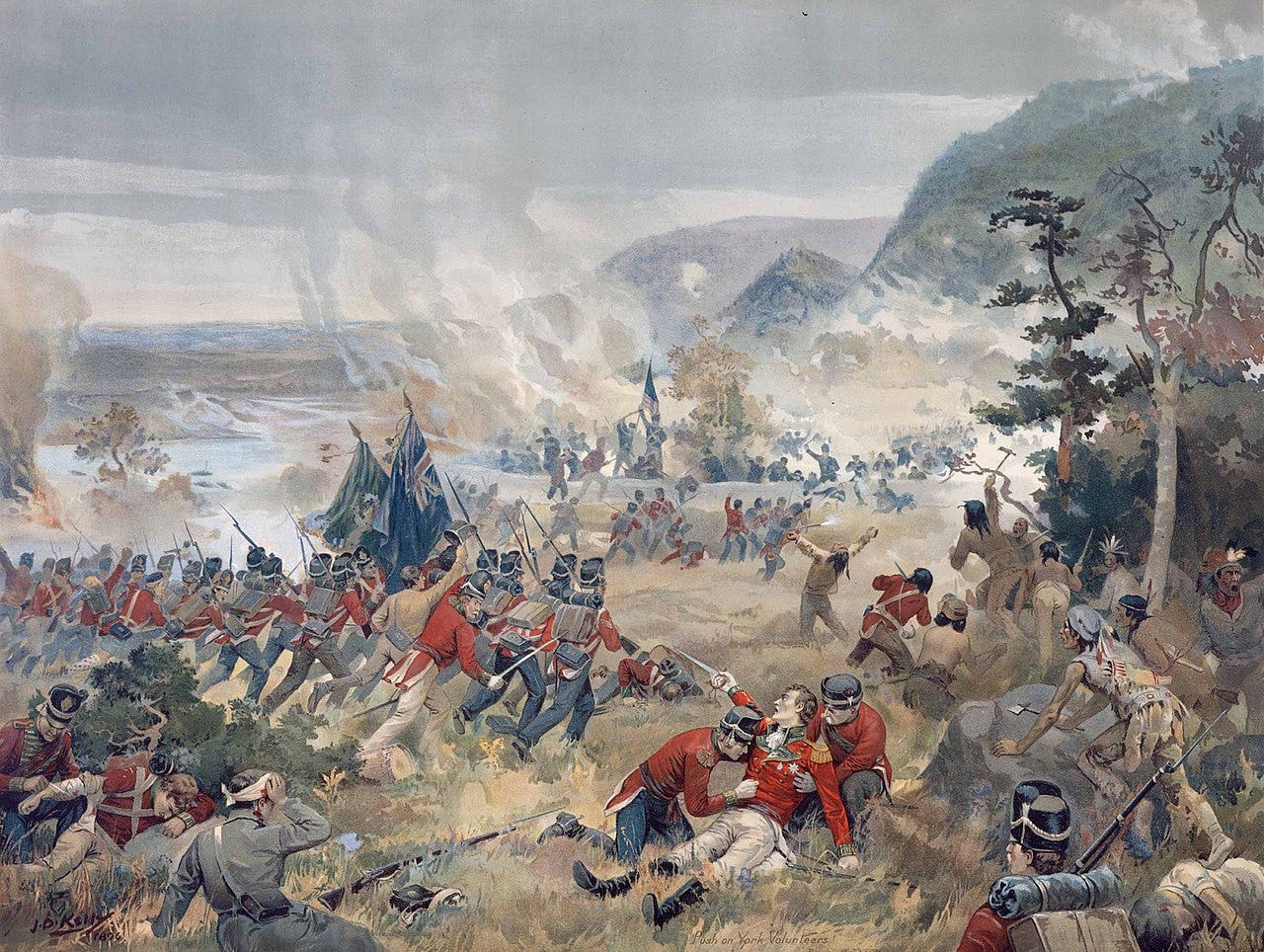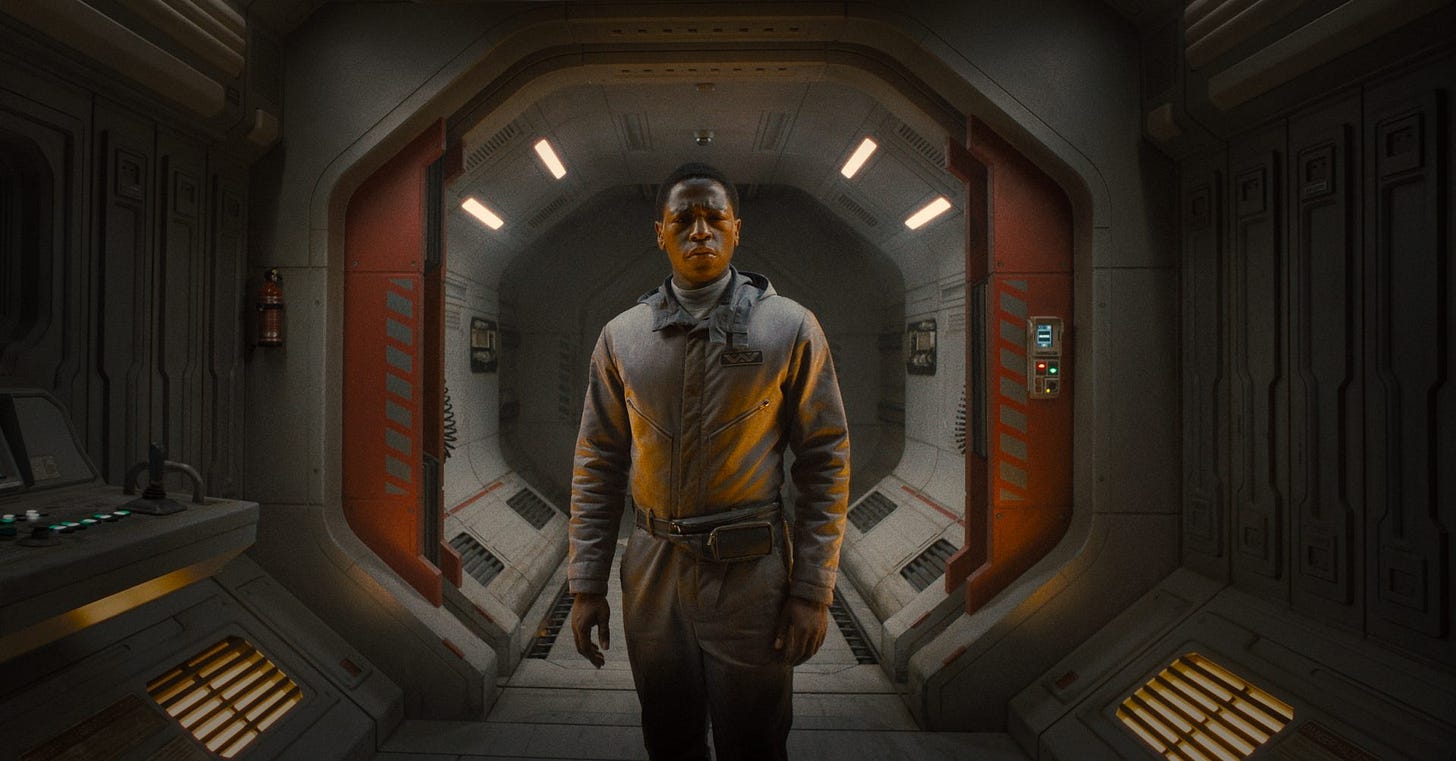The Ink — September 22
The Bedford Agricultural Fair, Cell Traffic, The Invasion of Canada, and more...
Welcome to The Ink.
Articles. Art. Music. More. The Ink is some stuff we found—or found interesting—recently.
Previously on The Squid
by Jacob T. — One way to bridge the disconnect between musicians and the true value of their craft.
Read
The Round House by Louise Erdrich
James: The Round House is one of Louise Erdrich’s darker books. Joe is a 13 year old boy whose mother comes home after escaping from sexual assault and her potential murder. He is frustrated and angry at the hurdles his father faces in achieving justice and so with a group of friends, goes about obtaining justice on his own terms. Emotional and profoundly moving, the story is laced with Erdrich’s particular humour and lightness of language making what would be a hard story to read into a reflection on growing up, masculinity in boys and men, and the ongoing crisis of Missing and Murdered Indigenous Women.
Cell Traffic by Heid Erdrich
James: I was recently lent this book and have fallen in love with it. Cell Traffic is a collection of poems from Louise Erdrich’s sister, Heid Erdrich. Heid is an awarded poet who writes in this collection with a scientific edge. These poems ask, what does it mean to have a body that is altered by our experiences, and the experiences of our ancestors? How does being a mother and how does being a child co-influence our biology, ourselves, and our futures? These beautiful poems have really been a highlight in things I’ve read this summer.
The Invasion of Canada by Pierre Berton
Julian: During a recent visit to Peter B’s cottage, I found myself having neglected to pack anything to read. Thankfully, the shelves of the living room there are packed with eclectic volumes spanning everything from a 19th-century playground manual, to decades-old editions of The New Yorker, to the more contemporary Hunger Games series. I ended up landing on The Invasion of Canada, a historical account of the first year of the War of 1812 written by the famous Canadian author and media personality Pierre Berton. Berton’s retelling was absorbing, if not a bit dated. I doubt some of the language and historical accounts would stand up to modern scrutiny, but as a secondary source approached with a healthy degree of skepticism, it was a thoroughly enjoyable read. From the opening pages, I realized that I had absolutely zero understanding of that formative conflict beyond a vague recollection that the British had torched the White House at some point. Some aspects of the history, like the bumbling military leadership and tactics of a nascent United States, and the centrality of Indigenous allies to the British war effort, were riveting. I really enjoyed learning the causes and course of a war between nations whose deeply entrenched national characters had not yet been established—and how the very conflict itself helped to shape the national identities that we know so well today.
“There Are Only Two Shakers Left. They’ve Still Got Utopia in Their Sights.” by Jordan Kisner
James: What are shakers? You may know them by their austere New-England furniture or you may not know them at all. I didn’t until I stumbled across this article in the New York Times Magazine. Did I mention that there’s only two left? What was once a popular utopian religious movement in the 18th and 19th century now has two remaining members living on a farm settlement in Maine. Journalists have been writing for decades now about the demise of this strange vestige of an agrarian past in our globalized America, but Jordan Kisner does it differently. Kisner reframes the community from one on the brink of extinction, into one with a lesson that the world may need today.
Evicted by Matthew Desmond
Roman: To write Evicted, Desmond spent a year doing ethnographic field work in Milwaukee’s inner city in the immediate aftermath of the 2007-2008 financial crisis. He lived there full-time, first in a trailer park and then in a rooming-house, and followed eight families struggling with housing. Before writing, Desmond had accumulated 5000 pages of typed single spaced notes, and the result is a deeply researched, stark look at how evictions and housing insecurity lead to and perpetuate poverty in American cities. It’s honest and nuanced and most of all, real. I can’t recommend it enough.
“The Prince We Never Knew” by Sasha Weiss
James: Most of my friends know, I am a huge Prince fan. I can distinctly remember the first time I listened to a Prince album (Prince’s 1979 self-titled album in the gym of McGill University in the fall of 2017). Weiss is one of the few people who have seen a nine-hour documentary of Prince’s life and career using archival footage and interviews from Prince’s colleagues, friends, and family. This documentary will most likely never be released because of issues between the filmmaker Ezra Edelmann and Prince’s estate. The closest thing you can get is reading this special article in the New York Times magazine which describes Edelmann’s documentary process, some of the content, and what this documentary means for humanizing the artist we know as Prince.
TRUTH Social
Peter: If you were caught off-guard by Trump’s comments about cat-eating migrants in Springfield, Ohio during the debate, you probably aren’t a TRUTH Social user. Earlier that day the Squid newsroom observed a series of bizarre TRUTHs on Trump’s Truth account, featuring AI generated images of cats and ducks, some armed with MAGA hats and assault rifles, standing guard with AI Trump. The absurd mystery of these images led me to take a drastic step: I am now the proud owner of a TRUTH social account. This allowed me access to the comment section, where I found a deluge of ranting and memes, mostly AI generated, about the conspiracy theory Trump would rant about later that evening. I think we all breathed a sigh of relief when Trump was banned from Twitter. But now that the right has these walled off platforms, they seem to have gotten far, far weirder right under our noses (including, now, Twitter/X, where Elon’s insane anti-immigrant rhetoric goes unchecked by the wave of “verified” fanboys in the comments). It seems as though Americans have somewhat forgotten what living with Trump was like — perhaps if they were getting bombarded with crazy shit like this, like we were back in 2016, they’d start to remember.
Watch
Alien: Romulus directed by Fede Álvarez
Roman: I’m a fan of Ridley Scott’s original 1979 Alien, whose iconic chest-burster scene is burned into my brain. Alien spawned a whole franchise of ok-ish movies, which were…ok-ish. So I went into Alien: Romulus, the latest installation of that franchise, with low expectations – and was pleasantly surprised. It’s a standalone film with a tightly knit, not-too-ambitious plot that sets up the scaries quickly and believably. It’s also absolutely terrifying and deeply unsettling. The combination of horror and the kind of visceral disgust that you can feel in your gut is central to the Alien vibe, and Alien: Romulus pulls it off with aplomb. I was horrified and disgusted. If that sounds like your jam, give it a watch (in theaters, if you can).
Julian: As a kid, one of my favourite television shows was the documentary series Mayday. Each episode recounts the story of a transportation (usually aviation) disaster, including a dramatic reenactment of events, an analysis of contributing factors, and lessons learned. Though I’ve lost interest in Mayday itself due to its cornball reenactments and need to always stretch the retellings to fill 47-odd minutes of airtime, these incidents still fascinate me—which you’ll well know if you’ve read my pieces on the SS Noronic or the Lac-Megantic rail disaster. These days, one of my favourite YouTube channels is Mentour Pilot. Mentour Pilot is all the best parts of Mayday, without the cringe-worthy dramatizations and conventional television shenanigans. I recommend this excellent episode about the catastrophic 2007 runway excursion of TAM Airlines Flight 3054 in São Paulo, which is an incident I had never heard of.
Visit
The Bedford Agricultural Fair (Aug. 8 - 11, 2024)
Peter: Somewhere near the Vermont border, just past that area outside Montréal that smells like poop, sits the little old town of Bedford. On any day of the year you could walk out onto its grassy, rusted train bridge and admire the lazy brown Pike river flowing by, or buy fireworks at the Depanneur Rivière. But for a few days a year, the only thing to do in Bedford is drive your rented Kia Rio onto a grassy field and bask in the glory of the Bedford Agricultural Fair. As a city slicker from the mean streets of Fredericton, I had never attended an agricultural fair, and thus had never enjoyed such sights as The Judging of the Emaciated Cow, or Superlative Vegetables, or The Big Field Full of Tractors For Sale. This being the oldest agricultural fair in Québec, everything felt imbued with a deep sense of tradition, even the more modern entertainment like Modified Lawn Mower Drag Racing or Smashing Cars Together Until They No Longer Function. It all seemed to say, “this will never change,” in the way Country music’s pastiche of rural life does, in a way that’s ultimately just honest about how little we like change anyway. Standing under the technicolor glow of The Zipper, taking in a scene just like every carnival scene in every movie, I felt the slipstream of an overwhelming simplicity. How freeing to leave the sweaty, complicated city, cast off the swaddle of floor-length trousers, throw on some daisy dukes, and breathe the (still somewhat shit-scented) country air!






